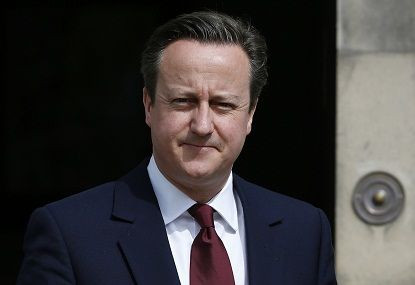UK parents may cancel their child’s passport if they fear radicalisation: David Cameron

British Prime Minister David Cameron revealed on Monday that parents will have the power to cancel their children’s passport if they suspect their children might travel abroad and join the Islamic State.
In a meeting with community leaders in Luton, the PM unveiled a slight change in the government’s counter-extremism strategy. In July, Cameron announced that parents would be allowed to block the passports of their children if they are under the age of 16. The limit has now been increased to 18 years old.
Initiating this power to parents would allow families to prevent children from travelling to Iraq and Syria from the U.K. and joining the ISIS terror group.
“No-one became a terrorist from a standing start. You don’t suddenly decide to become a terrorist,” Cameron said via the ABC. “It goes through a process of radicalisation, extremists, online preachers and the rest of it. And a comprehensive strategy to defeat extremism starts at the beginning rather than just thinking of the security interventions that you need to make.”
Cameron also advocated for treating hate teachers and convicted extremists in the same manner as paedophiles, ensuring that any Brit convicted with national extremism would not be allowed to work with or be connected with children in any manner.
On Sunday, the British PM announced that an extra fund worth 5 million pounds [AU$10.7 million] would be offered to moderate Muslim groups and charities. This funding of Muslim institutions is expected to help prevent the spread of radicalisation among British teenagers by Muslim extremists.
However, the British Muslim Council’s Secretary General Shuja Shafi said that the government's counter-extremism strategy was misguiding the “theory analysis that conflates terrorism with subjective notions of extremism and Islamic practices.”
"These measures could be seen more as a means to address the anxieties a minority of people may have against Muslims and their religious life, rather than the scourge of terrorism itself."
Contact the writer at feedback@ibtimes.com.au, or let us know what you think below.





















